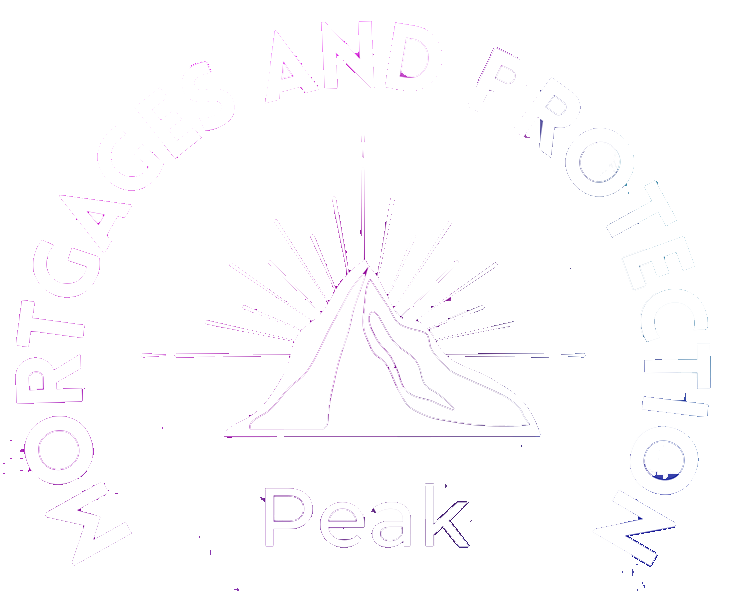Is Remortgaging a Good Idea?

Remortgaging can be a strategic financial move for many homeowners, but is it the right choice for you? Understanding the process, the potential benefits, and the drawbacks can help you make an informed decision. The Peak Mortgages & Protection guide will explore the ins and outs of remortgaging to answer the question: is remortgaging a good idea?
How Does Remortgaging Work?
Remortgaging is the process of switching your current mortgage deal to a new one, either with your existing lender or a different provider. Here are our steps to show you how remortgaging works:
The first step is to thoroughly review the terms of your existing mortgage. This includes understanding your current interest rate, the remaining loan term, and any early repayment charges. Early repayment charges can sometimes be significant and may affect whether remortgaging is a good idea for you. However, if your current deal is ending, you might avoid moving onto the lender’s standard variable rate (SVR), which is typically higher and less favourable.
This review is also a great opportunity to think about why people remortgage. Are you looking to secure a better interest rate, release equity for home improvements, or consolidate debts? Clarifying your goals will help determine the pros and cons of remortgaging in your situation.
The next step is to compare available mortgage deals to find one that better suits your needs. Whether you’re looking for a lower interest rate, reduced monthly payments, or more flexible repayment options, shopping around can uncover options tailored to your circumstances. You may choose to stick with your current lender or move to a new provider offering more competitive rates.
Why do people remortgage at this stage? Often, it’s because their financial situation has improved, allowing them to access better deals, or because they want to switch to a fixed or variable rate mortgage for greater stability or flexibility. Remember, the pros and cons of remortgaging depend heavily on the terms of the deal you find and how well it aligns with your financial goals.
Once you’ve identified a better deal, it’s time to submit your application. This involves providing the lender with necessary documentation, including proof of income, recent payslips, bank statements, and details about your current mortgage. A strong credit history can also make a significant difference when applying for a new mortgage.
During this step, it’s crucial to consider the overall costs involved. While remortgaging can save you money in the long term, application fees, valuation charges, and other administrative costs might add up. Weighing these costs against the potential savings will help you decide, “Is remortgaging a good idea for me?”
Before final approval, the new lender will conduct a valuation of your property to confirm its current market value. This step ensures that the loan amount you are seeking is appropriate for the value of your home. A higher property value can work in your favour, potentially giving you access to better rates or allowing you to release equity.
If the valuation and your application are approved, the lender will issue a formal mortgage offer. This is an essential step in the process, as it finalises the terms of your new loan and sets the stage for the switch.
Once the new mortgage is approved, your new lender will pay off your existing loan, and you’ll begin repaying the new one. At this stage, you can start reaping the benefits of remortgaging. Whether it’s through lower monthly payments, access to extra funds from released equity, or a repayment structure that suits your lifestyle, the financial advantages of remortgaging often outweigh the initial costs for many homeowners.
Why Might I Consider Remortgaging?
There are several reasons why remortgaging might make sense:
1. Securing a Better Interest Rate
If your current mortgage deal is ending, remortgaging allows you to avoid moving to a lender’s standard variable rate (SVR), which is typically higher.
2. Releasing Equity
Remortgaging can help you unlock equity in your home, providing funds for renovations, a major purchase, or other investments.
3. Consolidating Debts
Combining high-interest debts into a single mortgage payment could simplify your finances and reduce your monthly outgoings.
4. Changing Mortgage Terms
You might remortgage to extend or shorten the term of your loan, adjust payment flexibility, or switch from a fixed rate to a variable rate (or vice versa).
5. Improving Financial Stability
If your financial circumstances have changed, remortgaging can help you secure a more manageable repayment plan.
Click the button below to read more via our Remortgaging page.




Is Remortgaging Worth It?
So, how long does a remortgage take? Whether remortgaging is worth it depends on your individual circumstances. Here are some scenarios where it can be beneficial:
1. Cost Savings
Lower interest rates mean lower monthly payments, which can result in significant long-term savings.
2. Financial Goals
If you need to access equity or manage debt, remortgaging provides a viable solution.
3. Avoiding Fees
Consider any early repayment charges or setup fees for a new mortgage. If these costs outweigh the potential savings, remortgaging might not be the best choice.

Pros And Cons Of Remortgaging
Pros
- Lower Interest Rates: Switch to a deal with a more competitive rate.
- Equity Release: Access funds tied up in your property.
- Flexibility: Adjust your mortgage terms to suit your current needs.
- Debt Consolidation: Simplify multiple payments into one.
Cons
- Fees and Charges: Early repayment charges, arrangement fees, or valuation costs can add up.
- Time-Consuming: The process of comparing deals and applying for a new mortgage takes time and effort.
- Potential Rejection: Changes in your financial situation may make it harder to qualify for a new mortgage.
Remortgaging - A Good Idea
Determining if remortgaging is a good idea for you depends on several factors. Here are some scenarios where remortgaging is likely to be beneficial:
- You’ve Built Up Equity: If your property value has increased or you’ve paid down a significant portion of your mortgage, you may qualify for better rates.
- Your Current Deal is Ending: Avoiding your lender’s SVR can save you money.
- You Have New Financial Goals: Whether it’s funding home improvements or consolidating debt, remortgaging can align with your objectives.
However, if your financial circumstances have worsened or the fees outweigh the benefits, staying with your current deal may be the better option.
FAQs About Remortgaging Being A Good Idea
The best time is usually 3-6 months before your current deal ends. This allows you to secure a new deal without paying early repayment charges.
Yes, remortgaging with bad credit is possible but may require extra effort. Specialist lenders cater to those with poor credit, though rates may be higher. Improving your circumstances, such as paying down debt or increasing income, can also boost your chances. Significant equity in your property can work in your favor, as it lowers the lender’s risk.
To improve your approval chances:
- Review your credit report for errors.
- Pay off existing debts.
- Avoid applying for new credit.
While higher fees and rates are common, a mortgage advisor can help find suitable lenders and guide you through the pros and cons of remortgaging with bad credit.
Yes, remortgaging can impact your credit score, but usually only temporarily. When you apply for a new mortgage, lenders perform a hard credit check, which may slightly lower your score in the short term. Additionally, switching to a new mortgage may close your old account, affecting the average age of your credit history.
However, making regular payments on your new mortgage can improve your score over time. To minimize the impact, avoid applying for other credit around the same time, and ensure your finances are in good shape before applying.
Common fees include early repayment charges, arrangement fees, and valuation costs. Always calculate these when comparing deals.
Yes, this is known as equity release. You can use the funds to invest in a second property or other ventures.
Is Remortgaging a Good Idea?
Remortgaging can be a smart financial move, but it’s not for everyone. Consider your financial goals, the costs involved, and the potential savings before making a decision. Whether you’re looking to secure a better deal, release equity, or consolidate debt, understanding the process will help you decide if remortgaging is a good idea for you.
If you’re still unsure, get in touch with Peak Mortgages & Protection for expert advice tailored to your circumstances. Let us guide you toward a decision that aligns with your financial goals.
Also, explore more of our expert blogs to find tailored advice and insights on remortgaging and other mortgage solutions to meet your unique needs!
Stay Connected!
Follow us on social media for expert mortgage tips, the latest market updates, and advice tailored to your needs. Click below to join the conversation!

